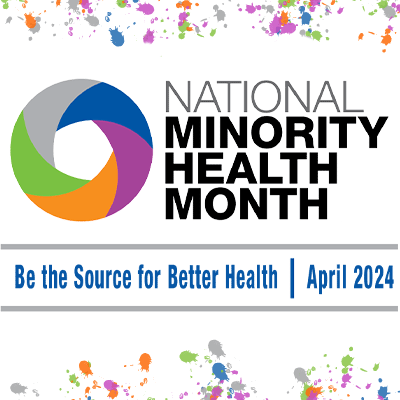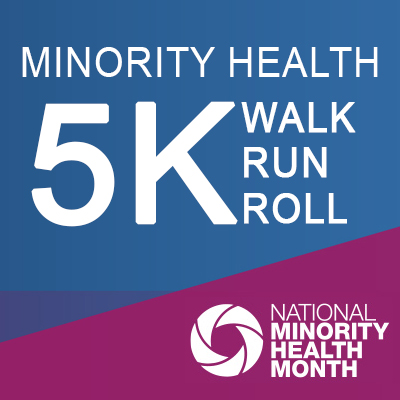Be the Source for Better HealthImproving Health Outcomes Through Our Cultures, Communities, and ConnectionsApril is National Minority Health Month (NMHM), a time to raise awareness about the importance of improving the health of racial and ethnic minority communities and reducing health disparities. Learn more about NMHM. Join NIMHD, our partners across NIH, and the HHS Office of Minority Health (OMH) to Be the Source for Better Health as we share resources to improve health outcomes through our cultures, communities, and connections. |
2024 NIMHD NMHM Events
NIMHD Fireside ChatWith The Honorable Louis W. Sullivan, M.D. Event conducted April 22, 2024 |
NIH Minority Health Walk, Run, Roll 5K
Event conducted April 11, 2024 NIH Main Campus |
About National Minority Health Month
Celebrated every year in April, National Minority Health Month:
- Builds awareness about the disproportionate burden of premature death and illness in people from racial and ethnic minority groups.
- Encourages action through health education, early detection and control of disease complications.
The origin of National Minority Health Month was the 1915 establishment of National Negro Health Week by Booker T. Washington. In 2002, National Minority Health Month received support from the U.S. Congress with a concurrent resolution (H. Con. Res. 388) that “a National Minority Health and Health Disparities Month should be established to promote educational efforts on the health problems currently facing minorities and other populations experiencing health disparities.” The resolution encouraged “all health organizations and Americans to conduct appropriate programs and activities to promote healthfulness in minority and other communities experiencing health disparities.”
Page updated July 19, 2024




